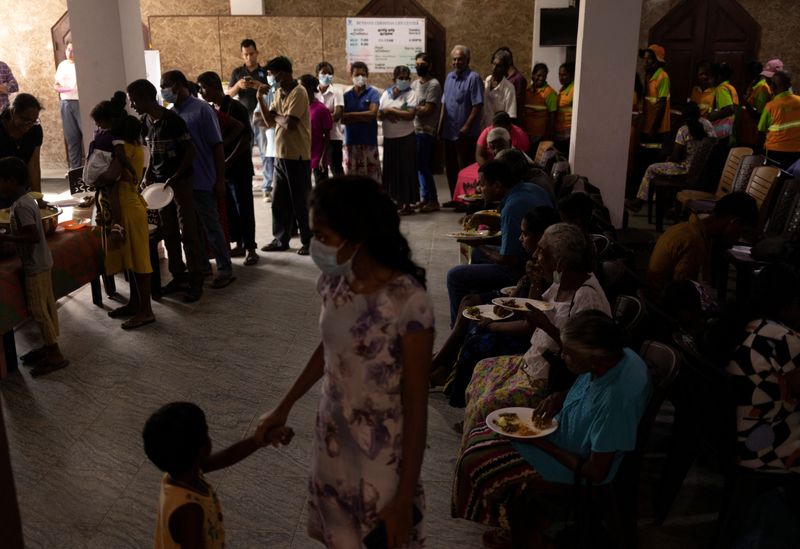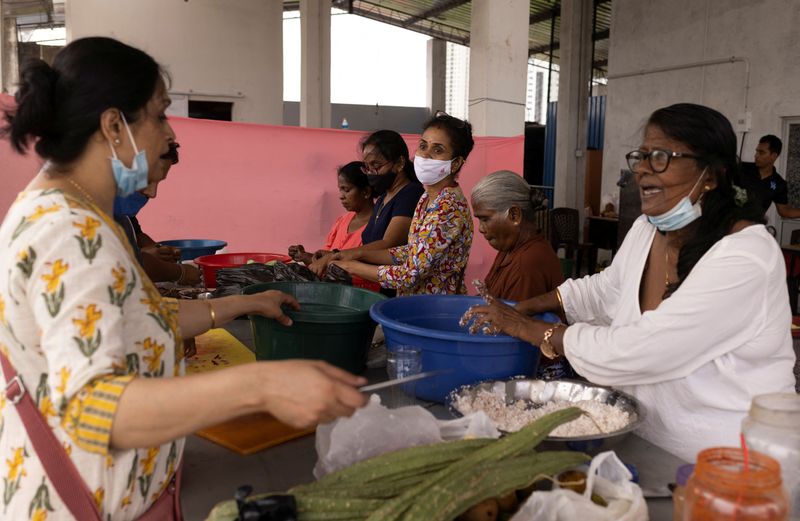By Alasdair Pal
COLOMBO (Reuters) - With no fuel and no money for food, H. G. Indrani and her family of nine trudged for an hour to a community kitchen in Colombo, in hopes of finding a simple vegetarian meal.
Rampant food inflation and chronic shortages of cooking gas and petrol are making daily life a battle for millions in the midst of Sri Lanka's worst economic crisis since independence from Britain in 1948.
"There is no income," said Indrani, one of hundreds queuing in the midday sun at a makeshift kitchen run by a church. "There is no food most of the time, we have been suffering a lot."
The price of a kilogram of rice had risen to 250 rupees, from 90 rupees six months ago, she said.
"There is no food at home," the 57-year-old added. "We will have to suffer more. We only want to eat, to survive."
Two dozen volunteers boil rice, dice onions and scrape the flesh from coconuts as they cook over open fires due to the shortage of gas in the space on the flat roof of the church near Sri Lanka’s parliament.
"The need is so great," said Akila Alles, the chief operating officer of the Bethany Christian Life Centre, which set up kitchens at 12 of its churches and served food to about 1,500 people each day since June.
"Inflation is so high people can’t afford to eat. Without gas people can’t cook, and without transport people can’t work."
Conditions are grim enough that more than 5 million Sri Lankans have reported being forced to skip meals so as to get by, the World Food Programme said this week on Twitter (NYSE:TWTR).
Months of anti-government protests that came to a head this month after thousands stormed government buildings, bringing down former president Gotabaya Rajapaksa, have crossed religious and ethnic lines in the diverse Indian Ocean nation.
Catholic nuns and Buddhist monks have been a regular sight at protests, and communities have worked together to satisfy the growing humanitarian need.
Donations have come from as far as China and Vietnam, with a Buddhist monk dropping off a large donation of rice at the church.

"Sometimes people who come here have nothing at all," said a volunteer cook, K. D. Irani, as he stirred a cauldron of dal, or lentils.
"I am 66, but I have never seen a crisis like this in my life. We are doing this for the love of the people."
